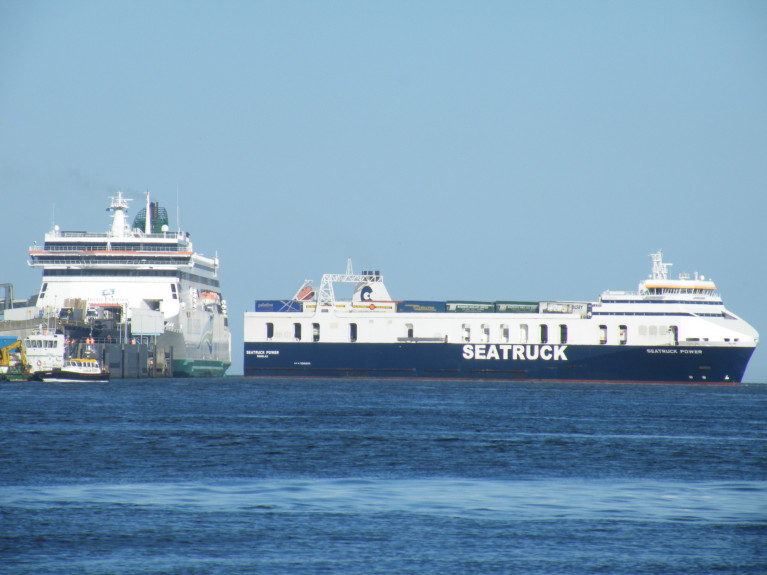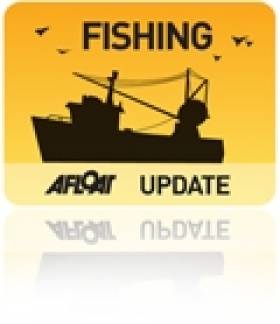Displaying items by tag: Vessels
Vessel Numbers Arriving in Irish Ports Rose By 7%
New Central Statistics Office figures show that the number of vessels arriving in Irish ports last year rose by 7% on 2020 levels.
The gross tonnage of all arriving vessels in 2021 also increased by 7%, the CSO said.
Irish ports handled nearly 54 million tonnes of goods in 2021, an increase of 5% compared with 2020.
The CSO said that goods forwarded from Irish ports amounted to 17.4 million tonnes in 2021, while a total of 36.5 million tonnes of goods were received.
Today's CSO figures also show that over one million passengers passed through Irish ports last year, a jump of 25% compared with 2020.
More RTE News has to report on the port statistics.
New System of Points for Serious Fisheries Offences
#fishing – Ireland now has in place a system to apply points to the license of fishing vessels involved in serious fishery offences. Irish legislation, bringing into effect Ireland's points system for serious infringements of the Common Fisheries Policy (CFP), as required by EU regulation, was signed into law by Simon Coveney, TD, Minister for Agriculture, Food & the Marine on the 8th January 2014. The point's scheme is separate from other potential sanctions for serious infringements including, for example, a court prosecution.
Infringements which might be regarded as warranting points when they are sufficiently serious, would include:
failing to fulfil obligations to record and report catch or catch related data (including data to be transmitted by satellite vessel monitoring system);
use of prohibited or non-compliant gear;
falsification or concealing of markings, identity or registration of the vessel;
concealing, tampering or disposal of evidence relating to an investigation;
taking onboard, transhipping or landing of undersized fish;
carrying out of fishing activities in a prohibited conservation area;
fishing without a valid licence, authorisation or permit issued by the flag State or the relevant coastal State;
fishing in a closed area or during a closed season, without or after attainment of a quota or beyond a closed depth;
fishing for a stock which is subject to a moratorium or for which fishing is prohibited and,
obstruction of the work of officials in the exercise of their duties in inspecting for compliance with the applicable conservation and management measures.
The number of points to be attributed for specific infringements is set down in EU regulation. Every time a serious infringement is committed, the appropriate number of points will be assigned to the license holder of the vessel. Any license holder who accumulates more than 18 points will have the fishing license suspended for at least two months. For higher numbers of points the penalty increases to suspensions of four, eight and twelve months respectively. If, after the end of the fourth suspension period, further serious infringements occur, the fishing license will be permanently withdrawn. However, if the offender does not commit any serious infringements within three years of the previous such infringement, all points on the fishing license will be deleted and he/ she will start again with a clean slate. The regulation also provides for fishers to engage in activities which would result in deletion of points. Points stay with the vessel capacity and its associated license and are therefore transferred to the new owner if the vessel is sold on.
Susan Steele, Chair of the SFPA said: 'The SFPA welcomes the point system for serious infringements. The SFPA can initiate the issuing of points to vessels committing serious infringements in waters under Irish Jurisdiction and this will go a long way to ensure that fishing rules are applied in the same way in all member countries as well as harmonising the way infringements are sanctioned. We believe in proportionate dissuasive sanctioning of infringements detected and the SFPA are committed to implementing this system in an effective, fair and proportionate manner. These rules will give Ireland and other EU Member States new powerful tools not only to protect our fishing resources from unscrupulous operators, but also to protect the livelihoods of honest fishermen who would otherwise be exposed to unfair competition.
'The point system for serious infringements will work in tandem with the legal prosecution process through the courts. The cumulative effect should provide a very real deterrent for those who seek to gain unfair advantage over their fellow fishers by engaging in repeated serious infringements.'

























































